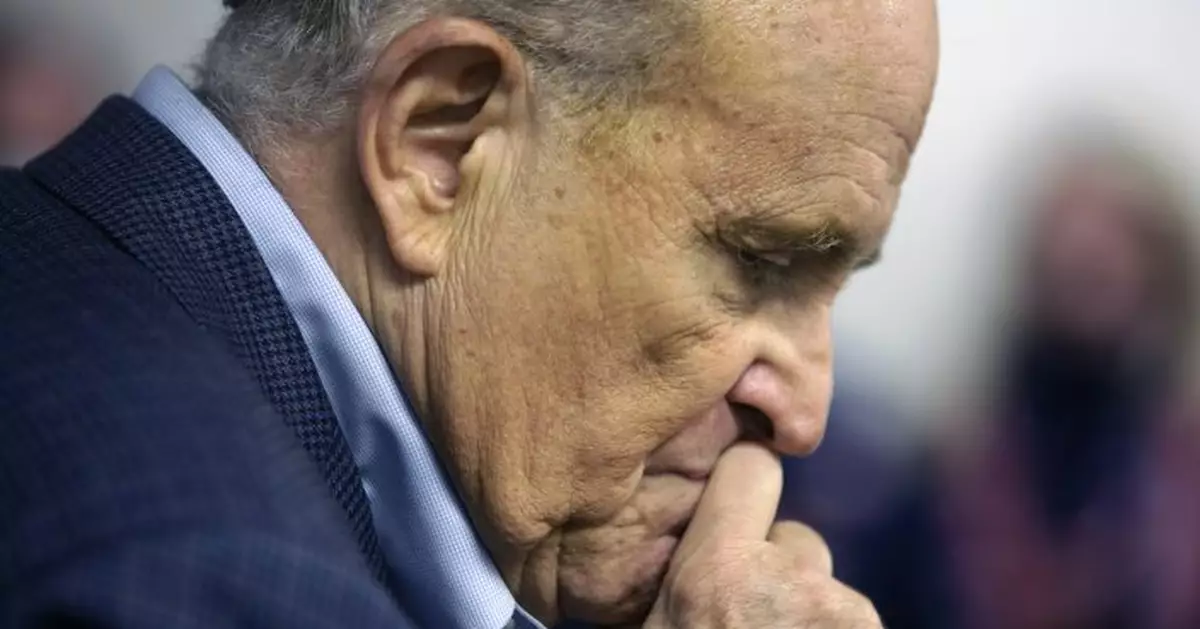Federal prosecutors have asked a judge to appoint a “special master” to review material seized by the FBI last week from Rudy Giuliani’s home and ensure investigators aren’t able to see records protected by attorney-client privilege, according to court records unsealed Tuesday.
In a letter dated Thursday, prosecutors requested the oversight, saying it would be similar to what occurred after federal agents seized electronic devices from the home and office of attorney Michael Cohen three years ago.
At the time, Cohen was one of then-President Donald Trump’s attorneys. Giuliani also represented the president. Cohen eventually pleaded guilty to campaign finance law violations and other crimes and was sentenced to three years in prison.
The federal probe is examining Giuliani’s interactions with Ukrainian figures and whether he violated a federal law that governs lobbying on behalf of foreign countries or entities.
Giuliani, a Republican and former mayor of New York City, has not been charged with a crime. He has said all of his activities in Ukraine were conducted on behalf of Trump. At the time, Giuliani was leading a campaign to press Ukraine for an investigation into Joe Biden and his son, Hunter, before Biden was elected president.
Last Wednesday, FBI agents recovered multiple electronic devices during an early-morning search of Giuliani’s home and office.
In their letter, prosecutors said the search was carried out on Giuliani by FBI agents who have not been involved in the investigation and will not be involved in the future.
They said in the letter to U.S. District Judge J. Paul Oetken a day after the searches that FBI technical specialists had begun extracting materials from the seized devices, but had not yet begun reviewing the materials.
Oetken permitted some redactions prior to the unsealing of the government's letter, including portions specifying what was taken from Giuliani and Washington lawyer Victoria Toensing, a former federal prosecutor and close ally of Giuliani and Trump. Her law firm said after the searches that she was told she was not a target of the investigation.
Oetken set up a schedule for filings pertaining to legal issues starting next week.
Giuliani has objected to the seizure in part because he contends the material on the devices would be subject to attorney-client privilege — the client being Trump. Courts sometimes designate an attorney not directly involved with the case, known as a “special master,” to address such concerns.
In requesting the “special master,” prosecutors wrote that when attorney-client privilege might be affected, a review of seized materials may be conducted by a government “filter team,” a magistrate judge or a “special master.” They said defense lawyers typically request a “special master.”
But they wrote that the government considered it appropriate to appoint one in the Giuliani probe to determine what must be protected by attorney-client privilege in part because of “the overt and public nature of these warrants.”
They then quoted Judge Kimba Wood from the Cohen case when she stated that a “special master” was appropriate for the “perception of fairness, not fairness itself.” Wood appointed a former Manhattan federal judge to conduct the oversight.
Citing a terrorist probe of a lawyer 20 years ago, prosecutors said a government “taint team” was commonly used but added that the appointment of a “special master” may be appropriate when the attorney represents the U.S. president. It then cited the Cohen case as an example.
A lawyer for Giuliani did not immediately return a request for comment Tuesday. A spokesperson for prosecutors declined comment.


